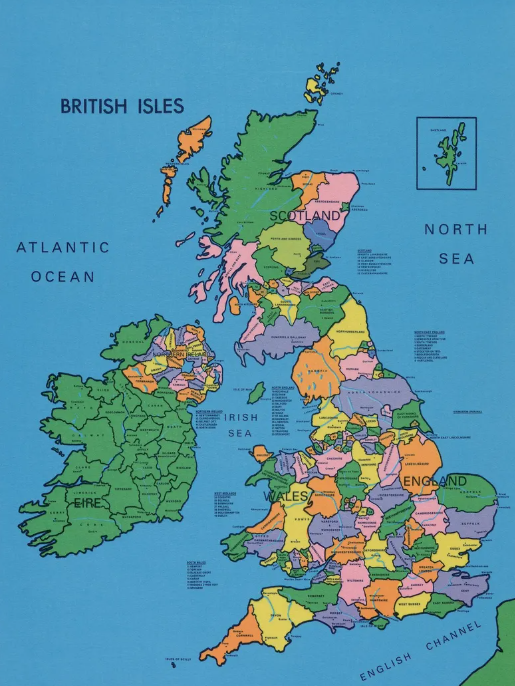- BY Kevin Barry BSc(Hons) MRICS
- POSTED IN Latest News
- WITH 0 COMMENTS
- PERMALINK
- STANDARD POST TYPE

Reviewing the ESRI report on the economic comparison between Ireland and Northern Ireland (NI) alongside the Secretary of State’s speech, below one can analyze how these materials relate to unionist perspectives on “preserving the Union.”
Economic Divergence and Unionist Concerns
The ESRI report highlights significant economic divergence between Ireland and Northern Ireland that would concern unionists:
- Living Standards Gap: The report shows household disposable income was 18.3% higher in Ireland than in NI in 2018, with this gap widening over time. Hourly earnings were 36% higher in Ireland (PPP adjusted) by 2022.
- Productivity Differences: Ireland outperforms NI in 8 of 10 economic sectors, with particularly large gaps in manufacturing and information/communication sectors.
- Public Service Challenges: The report notes NI’s concerning healthcare metrics, including higher infant mortality rates (4.8 per 1,000 births in NI vs. 2.8 in Ireland) and longer hospital waiting lists.
- Education Gap: NI has significantly lower educational participation rates for 15-19 year olds (70.6% vs. 93.9% in Ireland) and higher early school leaving rates (10% vs. 2.7%).
For unionists, these economic and social indicators risk undermining the case that Northern Ireland benefits from Union membership, as citizens might increasingly compare their circumstances unfavorably with those in Ireland.
The Secretary of State’s Perspective
In his speech one year after the Executive’s restoration, Hilary Benn acknowledges some of these challenges but frames them differently:
- Reform Rather Than Funding: Benn argues that NI’s public service problems stem not from insufficient UK funding but from lack of reform: “The real impediment has been the failure to reform the system.” He notes health spending per head is nearly £300 higher in NI than England, yet outcomes are worse.
- Windsor Framework: He defends the post-Brexit arrangements that many unionists opposed: “The Framework brought significant improvements in the arrangements in Northern Ireland, thanks to the pragmatic approach the EU took in the negotiations.”
- Economic Potential: Benn highlights that “Northern Ireland’s economic output is now 9.7% above its pre-pandemic level, which is significantly higher than the rest of the UK” and points to UK government investments in shipbuilding, creative industries, and other sectors.
Unionists’ “Preserving the Union” Concerns
The materials present several challenges to the unionist vision of preserving the Union:
- Economic Integration: The ESRI report shows increasing trade between NI and Ireland (rising from 14.4% to 21.9% of NI exports) while trade with Great Britain declined (from 59% to 54%). This economic reorientation could concern unionists who see economic integration with GB as vital to maintaining the Union.
- Brexit Implementation: The Secretary’s defense of the Windsor Framework and the Stormont Brake mechanism doesn’t address deeper unionist concerns about any regulatory divergence between NI and GB.
- Demographic and Social Trends: The report shows NI has an older population structure than Ireland, with demographic and social indicators moving in directions that could potentially strengthen nationalist arguments in the future.
- Constitutional Future: While Benn states “Northern Ireland’s place in the Union is secure” for as long as people wish it, the economic divergence documented in the ESRI report creates conditions that could eventually challenge this status quo.
The Secretary of State’s speech attempts to reassure unionists by emphasizing the UK government’s commitment to Northern Ireland while acknowledging the “Safeguarding the Union” agreements that brought the DUP back into power-sharing. However, the economic realities documented in the ESRI report present long-term structural challenges that go beyond the political reassurances offered.
For unionists, truly “preserving the Union” would require addressing the growing economic and social divergence between Northern Ireland and both Great Britain and Ireland – challenges that require sustained political stability and economic development / investment rather than just constitutional guarantees.
